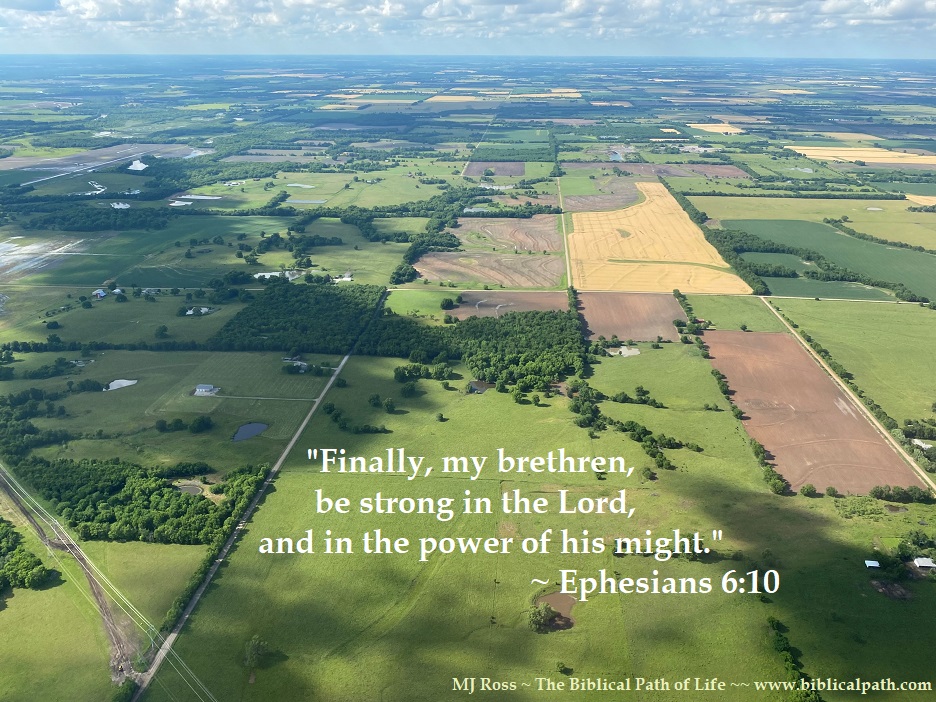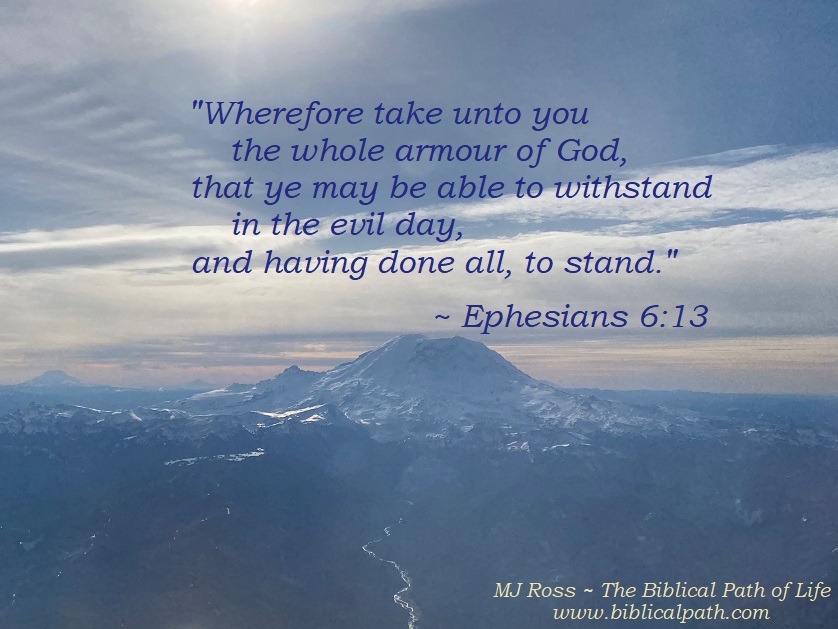
Ephesians 6:10
In this world, one only needs to look around to see just how prevalent sin has become. This sin is what separates man from the perfect and righteous God. “But your iniquities have separated between you and your God, and your sins have hid his face from you, that he will not hear” (Isaiah 59:2). However, instead of man wanting to reestablish the broken relationship, that separation from God, man’s tendency is to continue in that sin. “Their feet run to evil, and they make haste to shed innocent blood: their thoughts are thoughts of iniquity; wasting and destruction are in their paths.” (Isaiah 59:7).
Paul understood this, for he was one who recognized he was a sinner separated from God (“… that Christ Jesus came into the world to save sinners; of whom I am chief” 1 Timothy 1:15b). In that recognition that he was a sinner, he wanted all people to understand they were in the same condition in which he found himself. “10. As it is written, There is none righteous, no, not one: 11. There is none that understandeth, there is none that seeketh after God. 12. They are all gone out of the way, they are together become unprofitable; there is none that doeth good, no, not one. …18. There is no fear of God before their eyes” (Romans 3:10-18). But more than that, he wanted all to recognize that God knew, and He had made a provision to restore that broken relationship.
Man needed an intercessor (a mediator between a sinful man and a Holy God). In order to be worthy, the intercessor had to be perfect, sinless, enabling Him to redeem man from the condemnation of sin – death. God sent His only Son into the world to pay the penalty for man’s sin. In the book of Isaiah, God told the people what He would do. “16. And he saw that there was no man, and wondered that there was no intercessor: therefore his arm brought salvation unto him; and his righteousness, it sustained him. 17. For he put on righteousness as a breastplate, and an helmet of salvation upon his head; and he put on the garments of vengeance for clothing, and was clad with zeal as a cloke … 19. So shall they fear the name of the LORD from the west, and his glory from the rising of the sun. When the enemy shall come in like a flood, the Spirit of the LORD shall lift up a standard against him. 20. And the Redeemer shall come to Zion, and unto them that turn from transgression in Jacob, saith the LORD.” (Isaiah 59:16-20). Jesus, the Redeemer, came. He became the intercessor, bringing salvation by His righteousness. With that, when the enemy comes, there is a standard that is lifted up against him. It is Jesus, the Redeemer. He came – just as God declared He would. “4. But God, who is rich in mercy, for his great love wherewith he loved us, 5. Even when we were dead in sins, hath quickened us together with Christ, (by grace ye are saved;) … 8. For by grace are ye saved through faith; and that not of yourselves: it is the gift of God: 9. Not of works, lest any man should boast” (Ephesians 2:4-5, 8-9).
However, sin reigns in this world. Paul wrote important words to the churches in Ephesus. “10. Finally, my brethren, be strong in the Lord, and in the power of his might. 11. Put on the whole armour of God, that ye may be able to stand against the wiles of the devil. 12. For we wrestle not against flesh and blood, but against principalities, against powers, against the rulers of the darkness of this world, against spiritual wickedness in high places” (Ephesians 6:10-12). Paul warned that Christians are in a battle – but it is not “against flesh and blood.” Paul told specifically who and what the battle would be fought against: the devil and his demons who rule in this world.
How can Christian’s possibly stand against the “wiles of the devil” (wiles means “to work by method; connected with evil doing; to deceive, beguile”). Because of the previous picture that we read of the righteousness and salvation that Jesus took upon Himself (see Isaiah 59:16-17), we can understand even better what Paul taught. He gave us this same reference (of armament) to understand what is available to Christians as we learn to stand becoming zealous against sin in our day. We are in a battle, and we must be prepared to withstand. “Wherefore take unto you the whole armour of God, that ye may be able to withstand in the evil day, and having done all, to stand” (Ephesians 6:13). The Christian’s armor:“14. Stand therefore, having your loins girt about with truth, and having on the breastplate of righteousness; 15. And your feet shod with the preparation of the gospel of peace; 16. Above all, taking the shield of faith, wherewith ye shall be able to quench all the fiery darts of the wicked. 17. And take the helmet of salvation, and the sword of the Spirit, which is the word of God” (Ephesians 6:14-17).The final action Paul taught Christians should take as we stand against the “wiles of the devil” is Prayer. “Praying always with all prayer and supplication in the Spirit, and watching thereunto with all perseverance and supplication for all saints” (Ephesians 6:18). These are necessary to withstand in these wicked days.
Have you trusted in Jesus’ righteousness, having His salvation?
Have you taken up the Christian’s Armor, enabling you to withstand in this evil day?
